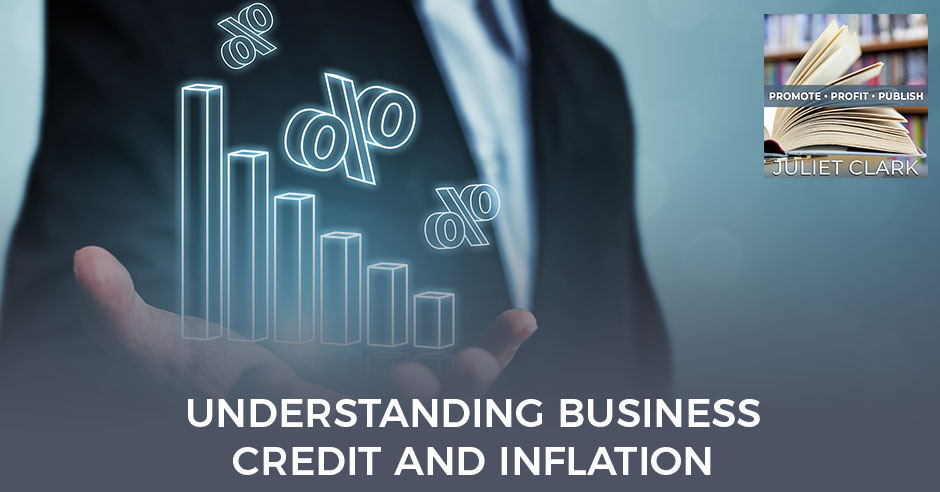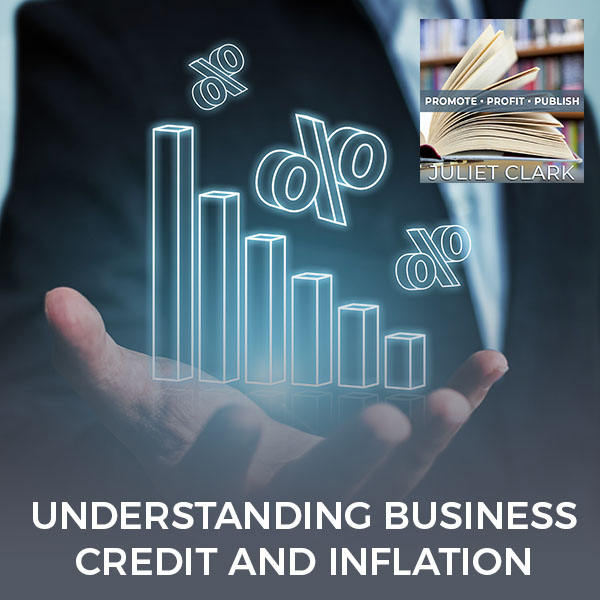
Are you knowledgeable about credit profiles and how they can affect your purchasing power? In this episode, Merrill Chandler shares his experience and provides tips on what business and personal cards people should avoid or use to maintain a good credit profile. Merrill also shares how inflation affects the use of these credit cards, may it be business or personal. Merrill is the co-founder of Lexington Law Firm and the founder of CreditSense. He has developed a process to optimize personal and business credit profiles and improve a borrower’s fundability. So stay tuned and learn the strategies to make the most out of your fund build a good credit profile!
—
Watch the episode here
Listen to the podcast here
Understanding Business Credit And Inflation
For those of you wondering, it’s the beginning of the year and we’re going to talk about inflation with our credit expert Merrill Chandler. Before we get over to him, and I know you guys have heard him on the show before, I want to send you over to our YouTube Channel at Superbrand Publishing and subscribe. You can see all these people on video. If you’re not somebody who’s listening to a podcast, video is a great way to go see that they are real people.
Also, it’s the beginning of the year. We have a brand new magazine, Breakthrough Author Magazine. It has great tips and tricks about book development, publishing, promotion and all those things that you need to be able to integrate into a great strategy. Go over to BreakthroughAuthorMagazine.com and pick up your free subscription. It’s going to be free all of 2022. Go over there and grab one.
In this episode, we have the world-famous Merrill Chandler, a personal and business credit card pioneer and Cofounder of the Lexington Law Firm. He became dissatisfied with the ineffective credit repair results. Leveraging his extended sense of knowledge of credit profiles and lender underwriting requirements, he developed a process that would optimize personal and business credit profiles and improve the borrower’s fundability. He founded CreditSense to deliver this revolutionary technology to real estate investors, business owners and entrepreneurs nationwide. He has helped thousands of borrowers become more fundable and help them access the capital they need to fulfill their financial dreams. Welcome.
I’m so happy to be here. It’s always a blast with you and your audience.
Thank you. I hope I can speak better than I can read. I’m having reading problems. I’m super excited to have you because there’s so much going on in the world. I want to get to inflation. I want to talk about the Great Resignation, all those people using their credit cards to fund their new businesses and all the mistakes around them. Let’s jump into it. While you’re spinning your chair back there and before we get started, tell people about your book, The New F* Word.
It was published with all of Juliet’s expertise. If you haven’t done it yet, it was pure magic. I’m a number one bestseller on Amazon. All of it is on Juliet. I’m not that smart.
Inflation has always been about an overheating economy.
That’s not true. He’s got a pretty good graphics team but I do have a question about that. You beat somebody big. Who was it?
There are two that I’m very proud of. We beat Napoleon Hill’s Think and Grow Rich and any of Dave Ramsey’s books, which he has dozens of them. I believe that more people are coming to understand that Dave Ramsey and people who preach that same gospel are thinking about consumer debt. Their background is about being overwhelmed. He filed for bankruptcy because of consumer debt. It’s not about strategic debt, the good kind of debt that helps us leverage opportunities for the future. That’s what we’re about. I’m with Dave on consumer debt, but there’s a whole new game in town when it comes to what we’re talking about now. It’s how to borrow strategically and how to avoid the landmines that people are running into in the Great Resignation.
The big thing on people’s minds now is inflation. As we’re going to the grocery store and as we consider that as consumers, what is the impact on that to businesses because so many of the people who read this are small businesses?
I’m all about defining our terms because we make a mess of including all these terms and thinking that we know what we’re talking about. First of all, let’s talk about inflation. Technically, up until this moment in history, inflation has always been about an overheating economy. Our economy is not overheating. We’re having supply chain issues that are affecting everything, so we have the look and feel of inflation but not an overheated economy. In an overheated economy, the Fed is going to raise interest rates. It’s going to try and slow everything down. The Fed came out saying, “Through next June, at least, the overnight lending rate is still going to be zero.” There is no movement to put a kibosh on an overheated economy because our economy is not overheating.
I want to make sure we’re clear that the prices are going up in a number of different areas, but we got to be smart about why they’re going up because COVID pulled the rug out from underneath us here over the last few months. There are barges and container ships that are sitting seventeen deep in harbors all around the world because they can’t get the supplies that they need. I do want to be careful about what we’re calling inflation. It looks and feels like inflation but your small businesses out there are being affected by not an overheated economy but by your supplies. Especially for real estate investors, the costs are going through the roof because they can’t get the less expensive lumber that’s not in Washington State, but it’s in China or Indonesia or wherever they’re buying wood from.
There are a lot of things going on that are contributing to this but I wanted to make sure we’re setting the playing field accurately because right now credit rates are not climbing. We’re not getting an interest rate. The Fed is not moving and the lending rates are not increasing, generally speaking. What is happening is that lenders are being more circumspect on who they lend to. There’s a difference between the cost of money and how careful they’re being in their underwriting considerations.

Business Credit And Inflation: For people who are retiring, or they are resigning and starting businesses, you do not want to run your business off of your personal credit cards.
That is so important. I want to talk about that little spiraling that’s going on with that as well. Right before we got on the show, I had to inform Merrill that the distribution phase went up at 55%. We have had paper costs, which affect the wholesale cost of your book, go up three times in 2021. You’re going to start to see books being more expensive because the end-users want to make more profit. That isn’t the overheated economy. It is simply that shortage of paper, which comes from the wood which goes into those houses. You were talking about remodeling, building and all that. When you talked about credit profiles, you mentioned that the banks are being more circumspect. What you teach is getting those credit profiles into shape for automatic approvals. Is this affecting those automatic approvals as well?
Let’s draw a picture here. I won’t go into full-blown easel and marker mode but imagine a target. Funding is a target and the easiest money or the least expensive money is that bullseye. Those are business loans and business lines of credit. Ever-expanding, every ring going out on that target, you might get approved, but it’s going to cost you higher interest rates, shorter terms or higher fees because your profile isn’t perfect.
What do you mean by perfect? Again, defining the terms. There’s what’s called a fundable profile. A fundable profile meets the lender guidelines. What most people don’t know is that it has nothing to do with your credit score. If there’s anything you walk away from here, it’s not about your credit score. Approvals have never been about your credit score.
Some of you may be able to pick up a personal credit card easily, but if you have an 800 personal credit score and you try to get a business line of credit or a business loan, you’re like, “Why did they reject me? I have a great score.” It’s not about your score. It’s about 40 borrower behaviors that FICO and lender software measure. If you optimize your borrower behaviors to fit that bullseye, you get approved. What happens in this economy has happened in 2008 and in each of the recessions in the past. Imagine that the lenders make the approval target smaller.
If your borrower behaviors are dialed in on that bullseye or that first ring, you’re still going to get approved. That’s what I mean by they’re more circumspect. They’re saying, “We want to approve but we’re not going to accept behaviors out here on the outer rings. Your stuff has got to be tight.” Think of sighting in a gun. You don’t move the target around when you’re sighting in a gun. You don’t move the gun around. You move the scope you’re looking through. You move the dials. That’s what we do with personal and business profiles. We sight-in the criteria so that we’re hitting the bullseye. Now, we’re going to get the proverbial funding.
Now, we’re in what we’re calling inflation. Are we going to start seeing more credit card debt and bankruptcies as we did in 2007 and 2008 where everything was going up?
There’s more money in the economy than ever has been.
It’s unlikely because, over the course of COVID, many people who received the fund dispersals from the Feds applied it toward balances in their credit card balances. They’re like, “Something’s going on. We’re all sheltering in place. We need to hunker down. Let’s get out of debt.” This is what’s hilarious if we’re looking at the biggest possible picture. As everybody got out of debt for the first six months of COVID thought through 2021, we had the lowest possible debt that we’ve had as a percentage of GNP for decades. As soon as we started summer and fall 2021 when the vaccine started to come out and before the Delta variant came out, everybody was like, “We beat that. Let’s go.”
Now, it’s over $13 trillion. It’s the highest credit card debt as a percentage of GNP than it’s ever been. It’s chicken and egg. Are we in massive debt as a country? We’re like, “It’s a free for all. Let’s all go into debt,” or did we set the stage of going into debt as a function and we’re contributing to the popularity of consumer debt? Some people judge it as supercilious debt. We’re turning on the funding tap. I don’t have a political bone in my body. I deal with what the facts are now. I don’t have a judgment as to whether this is good or bad. I’m saying there’s more money in the economy than ever has been, but we don’t have all the other inflation markers that we’ve talked about.
Lenders are still keeping mortgages pricing low. My clients are refinancing like mad people because they want these low-interest rates for their mortgages and their other investment properties. When it comes to the issue at hand, debt is the highest it’s ever been. It rebounded after this huge payoff. We were getting out of debt and then it became a free for all. There is more consumer debt. In my podcast, I have been yelling at the top of my lungs to get out of debt. Don’t incur more debt because the acquisition of new debt is one of the deal killers for getting powerful strategic debt. For people who are retiring or are resigning and starting businesses, you do not want to run your business off of your personal credit cards.
I know I didn’t do everything on your program but we started a few years ago. I’ve paid off $30,000 worth of debt in 2021. I remember that was one of the first things you said to me and I was so ashamed. You said, “Juliet, how are you going to pay this up?” I’ve paid this down. I’ve done some other things that I learned from your program that have put some of those other things that aren’t all the way paid down below the 37% level.
Now, you’re out of the risk assessment software. You are on your way to becoming more valuable to your lenders. Your borrower behaviors are proving up, which means that they’re going to stay okay over the long haul, “I want to give Juliet more money.” You are still in the program. As soon as we hit these markers, we will create higher and better funding approvals for you.
I haven’t shown up. That’s the problem. I’ve been busy. I was on a call with someone who said that authors, coaches and speakers businesses went down in 2021. I completely disagree. Our revenue doubled in 2021 because people are investing in themselves during COVID. That brings us to the other things going on in the world. The vaccinations and the time alone during lock-downs where people were like, “I’m super dissatisfied with my life. I’m going to educate myself. I’m going to get a new job.”

Business Credit And Inflation: If you’re going to fund anything, you need to build an LLC. And you need to get business credit cards that do not report to your personal profile.
The Great Resignation is pushing more people into the entrepreneurial space where they want to be in control of their time. They want to be in control of everything. With COVID, I played golf three days a week. Somehow in all this, I doubled my revenue. I played golf three days a week. I do know social media and I’m the happiest little plant on the planet. I wonder if everybody getting sick made that happen. To me, it’s incredible.
It is that slingshot effect. The apparent pullback or that drawback appears like we’re going backwards. Yet look at how many people are projecting into the future in a whole new way.
We all started in the same way with that anxiety and watching TV. I truly knew that when I watched all of Tiger King in one day, I had hit rock bottom.
You would hit the ultimate in quality of life. It depends where you’re coming from. I can watch all of Tiger King in one day. I am a boss.
I don’t know what it was but it was truly frightening. The other thing was YouTube. I got into history because I grew up in California. South Dakota, Wyoming and Montana, we were driving in the summer and I was like, “That’s where that happened,” because YouTube gave me a PhD in American History. The Great Resignation is upon us and what is that doing for these people who are using their credit cards to fund their entrepreneurial ventures?
If you’ve been reading while you’re working out, pay attention. If you’ve been cooking, pay more attention because what I’m about to say is a game-changer. Business credit changed after the massive reset in 2008. Business credit is not what we think it is. For example, this typifies the attitude. A woman came up to me. I was at an event and she goes, “Merrill, I loved your presentation. My personal credit is a mess. I want to build business credit.”
Don’t incur more debt because borrower acquisition of new debt is one of the deal killers for getting really powerful strategic debt.
There is no such thing. It hasn’t existed for many years now. There is no such thing as business credit without a fundable personal profile. I have a very amazing relationship with FICO because they’re the ones who have trained me on what are fundable behaviors. I got them straight from FICO. When I met with the folks at FICO, they said that 80% of the business approval for a business credit card, a business line of credit or a business loan is based on your personal profile. How fundable it is? How do you treat other people’s money on your personal accounts?
They don’t measure business credit reports. They are not very good and they don’t have the same metrics that are measurable like your personal credit does. For everybody who’s resigning and finally writing the book, engaging in real estate investing or being an entrepreneur in some way, you cannot, you should not and I forbid you to use personal credit cards for funding this endeavor or this enterprise that you’re considering. When you charge up your personal credit cards, your score goes down and your fundability goes down.
If you’re going to fund anything, you need to start an LLC and with adult supervision, you need to get business credit cards that do not report to your personal credit profile. For example, the Discover it card says business on the account but it reports to your personal. When you’re being a good businessman or businesswoman, every time you use the Discover it card, it makes worse your personal profile, which then guts your opportunity and hampers your opportunity to get more business credit.
It’s the same thing with Capital One. Do not get a Capital One Spark card or any business card from Capital One because they report to your personal profile. Every time you use it, you’re ruining the goose that lays the golden egg as I like to call it. The golden egg is business lines of credit, business loans, true business credit cards that don’t report to personal. If you get those, there are American Express ones. If you go to GetFundableCreditCards.com, I’ve pre-vetted all the credit cards, both personal and business, that are appropriate for your fundability. It will show you the appropriate business cards that don’t report to your personal profile.
If you’re looking for something, get one of those cards. Don’t believe the marketing. Business credit is not business credit. I’m super energized by this. You can’t see it but I’m jumping up and down over here. The whole point is don’t get business cards or any new credit cards that report to your personal and use them for business because you’re going to carry those loads. It happens to real estate investors all the time.
Learn from everybody else. They do a fix and flip on their personal account. Their scores drop 100 points from this high 700s to the high 600s. Even Fannie and Freddie won’t do a mortgage with them because they’ve got such high utilization. That means high balances on their cards. If you’re going to resign and you’re going to engage in any business activity, Godspeed, but do it well. Do it right so you don’t trip and fall on a funding landmine that’s going to get you stuck. If you default on the business credit cards, the collection will end up on your personal profile.

Business Credit And Inflation: The whole point is don’t get any new credit cards that report to your personal and use it for business because you’re going to carry those loads.
While it’s in good standing, you can carry a balance of 90% and it’s not going to hurt the goose that lays the golden egg. It is not going to hurt your personal profile. Please share this episode with anybody and everybody that you know who is working in a business or wants to start a business or wants to resign. Please share the love because this will kill your fundability. Lenders will not look at you because you’ve got high utilization while you’re working all of this out.
What was that URL again that you told them to go check?
It’s GetFundableCreditCards.com. I’ve already pre-vetted the cards under businesses that don’t report to your personal so that you’re safe. You get those credit cards and besides whatever bonus and miles, I don’t look at them that way. I look at them, “If you use them, are they going to hurt your personal credit balances,” and they won’t.
I’m going to go back to the Great Resignation again. This is something that I personally got caught up in 2007 and 2008. Pulling from your home equity line of credit. A little personal story, we did that with ours to start a business and the banks got into, “This is what we’re doing.” They lowered the limit. We went from using half to 100% when they cut it. Our credit scores flew through the floor because we were now at 100% of our limit instead of 50%. What about using those home equity lines of credit for this?
I’m going to give you all of your audience some awesome intel. This is what I teach my clients. During this time, your relationship with a lender is based on their measuring data and your communication with them via phone calls because they document everything that you’re doing. If you can, stay under 37% of your home equity limit or any of your personal credit cards. Anytime you go over 37%, you end up in the risk department and you’re under greater scrutiny. When you’re under greater scrutiny, that’s when they start looking at people to drop their credit limits. You were over 50% or higher and all of a sudden you’re like, “Let’s get rid of all our risk people first.”
It did go to 100% utilization, but the amount of money you had access to get lowered. That lowering is how they are protecting themselves. I’m going to tell you, this also happened in 2008. This is devastating to your profile so we got to be careful. There are occasions and it doesn’t usually happen with home equity lines of credit because it’s secured by the real estate. On personal credit cards, I saw dozens, if not hundreds of people who are complaining to us that said, “I had a $20,000 credit limit. I had a $15,000 balance. They lowered my limit to $10,000. Now, I’m over the limit by $5,000.”
There is no such thing as business credit without a personal fundable personal profile.
When I talked to FICO about this, the next worst thing to a 30-day late is overlimit. This is how lenders evaluate you. The next worst thing after going delinquent or 30-days or more late is overlimit. Lenders have no problem in putting that risk because it’s how they stop you. They didn’t go to you have $15,000 so they went to $16,000, or they went to $15,000 and when you pay it down, some of them continue to lower. Every time you make a payment, they lower the limit because of the borrower behaviors. You are a risky borrower. They want to limit that risk over and over again.
There are ways to mitigate that risk. There are borrower behaviors. My entire program is about how to be the perfect customer for lenders because remember, lenders only make money when they lend. They want to lend to non-risky borrowers. There’s an entire formula for being that perfect borrower and lender. Think of it this way. My clients have had over $53 million in funding since COVID. Normally, $35 to $40 million per year is our average.
It’s $53 million. Why? It’s because if you’re a fundable borrower, they trust you with their money. Whereas if you’re further out on that target, they close down that target. They’re only funding people who are tight on their borrower behaviors. If you still want to get the money during COVID, you want to be one of those perfect borrowers. You want to hit all of their underwriting markers. That’s how we do it.
I also learned a lesson. We have an app that we use inside of Merrill’s program and I was hoarding cash. I was moving. I opened a Home Depot account. No big deal. I had the cash. I was going to pay it off. Within minutes of the approval, I got dings on my phone and watched my credit scores go down 20 points within minutes. It was crazy. It’s all back up now. I know I need to listen.
You need to talk to your team because you would have been approved for a Commercial Home Depot account. We have to stay vigilant. If you have just said, “Can I get your commercial account that doesn’t report to my personal?” If they had given you that, you would have gotten approved because they would still look at your personal and you would have had no loss in the score. Did you close that account? That’s a low-value tier-4 junk card.
I haven’t but I could be persuaded to because it’s paid off. I was hoarding cash for the move and some software.

Business Credit And Inflation: You need to get that approval on the commercial account, not on the personal account to make you most fundable so that you don’t damage your profile.
What you need to do is to get that approval on the commercial account, not on the personal. You need to close the personal. It’s live coaching on how to handle the best to make you most fundable so that you don’t damage your profile. That is a low-value account. Even if it has a zero balance, it’s open and aging. It’s like hog-tying your profile because it’s a low-value account that makes you look like a consumer, not a strategic borrower.
Talk a little bit about your program. When are your upcoming bootcamps? I know you’ve got a long-term plan. What’s going on for February or March 2022?
The easiest thing to do is go to GetFundableBootcamp.com. The schedule of the next bootcamp is always there. Read the reviews. I can jump up and down about my own program. Even you can listen to Juliet but the bootcamp is as low as $97 for a ticket for two days. If you’ve gotten any value or any juice out of this conversation that we’ve been having, imagine sixteen hours of how to build a fundable personal and business profile.
Especially all of you who are Juliet’s universe. You’re authors and you’re trying to get your message out into the world. If you need business and you’re using credit to do so, make sure you do it well. Make sure to do it correctly so that you don’t step on those funding landmines and harm your profile. It doesn’t have to be this way. We can do it well, do it right and make it a home run. GetFundableBootcamp.com, it’ll show you the dates and read the reviews. There are folks who are sitting and reading this who are in your circumstances and their minds were blown. Check it out.
My mind was blown. I’ll give him a personal testimonial. I thought I knew about credit. I’ve had a business for years. I’ve had credit cards for years. I had to break your bootcamp up into two separate sessions because day one was mind-blowing. I think I’ve told you guys before, I used what he talked about in it and I bought a $60,000 car for practically no interest. I had to break it up because there was so much in there. I was super overwhelmed. Tell me if I’m wrong, once you buy a ticket, you can come back to the other ones. Do you guys still have it like that?
There’s the one-time viewing. There are other ticket choices in there where you can get the recordings. As long as you’re a member of our tribe, you can come back and watch multiple bootcamps. I have dozens of clients come back again because this is a moving target. There are so many things that are changing out there as we’ve discussed. We want to make sure that you have the latest intel on how to stay fundable during this weird time. The quasi inflation looks and feels, and yet we have low-interest rates. How do we take advantage of these low-interest rates and create the best results we can possibly do for the new enterprises that we’re starting, engaging or furthering?
Merrill, thank you. This was amazing. Hopefully, this will start your new year off in an amazing way and keep you out of some of those traps that I’ve stepped in all of them.
No credit shaming but we got to do better. Every one of us has the power to do better. Thank you for having me, Juliet. It’s always a pleasure. You’re delightful. I love making sure we get this message out there so everybody can avoid these landmines wherever possible.
You’re welcome. Remember to go over to www.BreakThroughAuthorMagazine.com. Get your free subscription for the year. There’s a lot of great stuff in it. I don’t know what we’re going to do in 2023 but it’s free in 2022. Thanks.
Important Links
- Superbrand Publishing
- BreakthroughAuthorMagazine.com
- Lexington Law Firm
- CreditSense
- The New F* Word
- Think and Grow Rich
- FICO
- GetFundableCreditCards.com
About Merrill Chandler
 Over 25 years ago, Merrill Chandler—a personal and business credit pioneer and co-founder of Lexington Law Firm—became dissatisfied with the ineffective results of credit repair. Leveraging his extensive knowledge of credit profiles and lender underwriting requirements, he developed a process that could ‘optimize’ personal and business credit profiles AND improve a borrower’s “fundability.” He founded CreditSense to deliver this revolutionary technology to real estate investors, business owners, and entrepreneurs nationwide. Merrill has helped thousands of borrowers become more FUNDABLE and help them access the capital they need to fulfill their financial dreams.
Over 25 years ago, Merrill Chandler—a personal and business credit pioneer and co-founder of Lexington Law Firm—became dissatisfied with the ineffective results of credit repair. Leveraging his extensive knowledge of credit profiles and lender underwriting requirements, he developed a process that could ‘optimize’ personal and business credit profiles AND improve a borrower’s “fundability.” He founded CreditSense to deliver this revolutionary technology to real estate investors, business owners, and entrepreneurs nationwide. Merrill has helped thousands of borrowers become more FUNDABLE and help them access the capital they need to fulfill their financial dreams.
In 2016 he and his executive team met with FICO® CEO Will Lansing to review the impact CreditSense optimization technology was having on borrower fundability. As a result of that meeting, Merrill was authorized to meet with the personal and business FICO® score development teams. After signing an NDA, Merrill was able to ask the FICO® developers 100 optimization questions to better his ability to help borrowers accomplish their funding goals.
What he shares in his presentations and web classes will radically transform what you believe about funding and your ability to get the funding you need to accomplish YOUR funding goals.
Through superior client relations, Merrill and his team have maintained an A+ Better Business Bureau rating for over 20 years.
Merrill is a compelling and knowledgeable keynote speaker and has addressed real estate investment conferences and businesses forums around the country where he has delivered his popular fundability optimization technology. Adventurous and passionate, he is an extreme sports enthusiast and enjoys exploring the world.









Leave A Comment